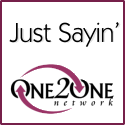13 Things You Really Should Consider About Universal Health Care
Thursday, August 13, 2009
 Since Obama and Congress weren't able to sell their universal health care idea on the American people by August, they've bought themselves some additional time by pushing the vote to September.
Since Obama and Congress weren't able to sell their universal health care idea on the American people by August, they've bought themselves some additional time by pushing the vote to September.
I found it amazing that on the same date at the push-back vote was announced (July 23, 2009), the U.S. stock markets did better than they had since January 2009.
That in itself speaks volumes to me - clearly investors are thinking that such a taxing plan is doomed for failure and therefore are investing their money once again in worthwhile goods and services.
I don't know whether you are for or against universal health care while you're reading this. Irregardless, the following are 13 things that all Americans should consider when thinking/discussing universal health care plans:
- Government-controlled health care would lead to a decrease in patient flexibility. In other words: if you're on the government's dime, you're on their time.
- Patients aren't likely to curb their drug costs and doctor visits if health care is free; thus, total costs will be several times what they are now. Consider this: when there was no such thing as insurance, people didn't run to see a doctor for the sniffles or to cure heartburn; and the majority of people still lived to be a ripe old age.
- Healthy people who take care of themselves will have to pay for the burden of those who smoke, are obese, etc. So what's the incentive to be healthy?
- Just because Americans are uninsured doesn't mean they can't receive health care; nonprofits and government-run hospitals provide services to those who don't have insurance, and it is illegal to refuse emergency medical service because of a lack of insurance. Enough said.
- Like social security, any government benefit eventually is taken as a "right" by the public, meaning that it's politically near impossible to remove or curtail it later on when costs get out of control. I think we've used up all the bailout options, what then?
- Health care equipment, drugs, and services may end up being rationed by the government. In other words, politics, lifestyle of patients, and philosophical differences of those in power, could determine who gets what. A little too reminiscent of Russia to me.
- Loss of private practice options and possible reduced pay may dissuade many would-be doctors from pursuing the profession. That's great! We'll rid ourselves of the good doctors and invite in only the lame ones!
- A long, painful transition will have to take place involving lost insurance industry jobs, business closures, and new patient record creation. What an excellent idea for a country struggling to pull out of a recession - let's create more unemployment!
- Government-mandated procedures will likely reduce doctor flexibility and lead to poor patient care. A prime example: under government controlled health care, individuals beyond a certain age are not considered worth treating.
- "Free" health care isn't really free since we must pay for it with taxes; expenses for health care would have to be paid for with higher taxes or spending cuts in other areas such as defense, education, etc. Seriously, with the state of the world today, do we really want to do any of these things?
- There isn't a single government agency or division that runs efficiently; do we really want an organization that developed the U.S. Tax Code - which is full of a lot of bureacratic BS -handling something as complex as health care? Hmmm, in other words: lawyers playing doctor. No thank you!
- Patient confidentiality is likely to be compromised since centralized health information will likely be maintained by the government. That's all we need: somebody like the 15-year-old who hacked the Pentagon's system getting in and messing with all our private and confidential information.
- Government is more likely to pass additional restrictions or increase taxes on smoking, fast food, etc., leading to a further loss of personal freedoms. Do you enjoy your freedoms or would you rather be a government sheep?
BONUS: If this universal health care plan is so great, why has Congress incorporated legislation that specifically exempts them from being on the same plan? Why is the President, who is so intent on passing this bill, also ensuring his exemption status through this bill?
If it's not good enough for them, it's not good enough for me either. I'll support it after seeing them follow an identical plan - successfully - for a minimum of 5 years.
Visit More Fun Thursday 13 Participants!





















0 chatted about this topic:
Post a Comment